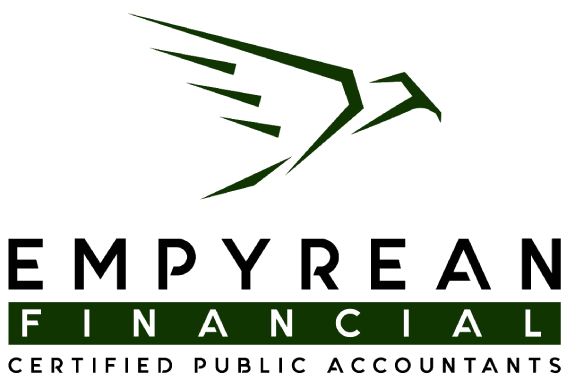In today’s digital age, it’s easy to feel like you can—and should—do everything yourself. With tools for everything from scheduling to accounting, the temptation to take a do-it-yourself approach is strong. But when it comes to managing your finances, knowing when to step back and bring in a professional isn’t just smart—it could save your business.
At Empyrean CPAs, we’ve seen firsthand how well-intentioned financial DIY efforts can backfire. Here’s our take on which tasks are safe to handle solo (at least for now), and which ones demand the expertise of a pro.

What’s okay to DIY (With a bit of caution)
Not every financial task requires a CPA. If you’re a solo entrepreneur or just starting out, you can often manage the following on your own—with the right tools and diligence:
- Basic Expense Tracking
Software like QuickBooks, Xero, or Wave can help you log day-to-day spending. - Invoicing and Receivables
Many CRMs or simple billing tools are sufficient for issuing and managing invoices. - Bank Statement Reconciliation
If your accounts are straightforward, monthly reconciliation is doable with a bit of discipline. - Simple Budgeting
Spreadsheet templates or online budgeting tools can help keep your numbers in check.
But be warned—once your business begins to grow, complexity comes fast. More clients, more vendors, and more moving parts mean it’s time to rethink what you can handle on your own.
Financial Tasks You Should Never DIY
1. Tax Planning and Filing
Tax laws are constantly evolving and vary by business type, location, and income. DIY software may overlook:
- Deductions you’re entitled to
- Proper filing techniques
- Audit red flags
- Payment deadlines and interest risks
Why it matters: A qualified CPA helps you minimize liability, plan ahead, and stay compliant—legally.
Pro Tip: Don’t wait until tax season to talk to your accountant. Strategic mid-year planning can make a big difference.
2. Entity Structuring and Compliance
Choosing the right structure (LLC, S Corp, sole proprietorship, etc.) isn’t just a formality. It can affect:
- Your tax liability
- Legal protections
- Filing requirements
A CPA or business advisor ensures your setup matches your goals and keeps you in good standing with state and federal regulations.
3. Payroll and Employment Taxes
This area is filled with pitfalls:
- Misclassifying employees (W-2 vs. 1099)
- Incorrect withholdings
- Missed IRS, state, or local filings
Even payroll software can miss critical compliance issues. A professional ensures everything’s done right—and on time.
4. Cash Flow Forecasting
Lack of cash flow—not revenue—is the #1 reason small businesses fail. Forecasting requires:
- Understanding your billing cycles
- Planning for future expenses
- Anticipating seasonal trends
- Modeling worst-case scenarios
A CPA can help create a realistic forecast so your business doesn’t get caught short.
5. Financial Reporting and Strategy
Thinking of applying for a loan or pitching to investors? You’ll need polished, accurate financial statements that:
- Earn you credibility
- Highlight your true performance
- Guide your pricing, hiring, and growth strategy
Accountants don’t just crunch numbers—they help you tell the story behind them.
6. Responding to IRS Notices or Audits
If the IRS contacts you, don’t go it alone. Even simple letters can have complicated implications.
A CPA will:
- Decode the IRS’s message
- Respond professionally on your behalf
- Organize necessary documents
- Ensure prompt and proper handling
Think of it like going to court—you wouldn’t represent yourself, and you shouldn’t try to handle the IRS alone either.
7. Year-End Book Cleanup
If you’re scrambling to chase receipts or reconcile books at year’s end, you’re already behind.
A CPA-led cleanup ensures:
- Accurate profit and loss statements
- Proper expense categorization
- Correct asset and depreciation treatment
- A stress-free tax filing process
Plus, they help set the stage for a clean financial start in the new year
Signs You’ve Outgrown DIY
- You’re not sure if you’re turning a profit
- You’ve got employees, vendors, or contractors
- You’re behind on taxes—or unsure what’s due
- Your business is growing, but your finances feel chaotic
- You spend more time bookkeeping than building your business
If any of these ring true, it’s time to call in reinforcements.
Final Thoughts: DIY What You Can—But Be Strategic
You’re the business owner, not the accountant. It’s great to simplify and automate where you can. But knowing when to bring in an expert? That’s next-level smart.
At Empyrean CPAs, we help business owners like you take control of your finances with confidence. From compliance to strategy, we turn your numbers into insights—and your stress into clarity.
Ready to stop guessing and start growing?







